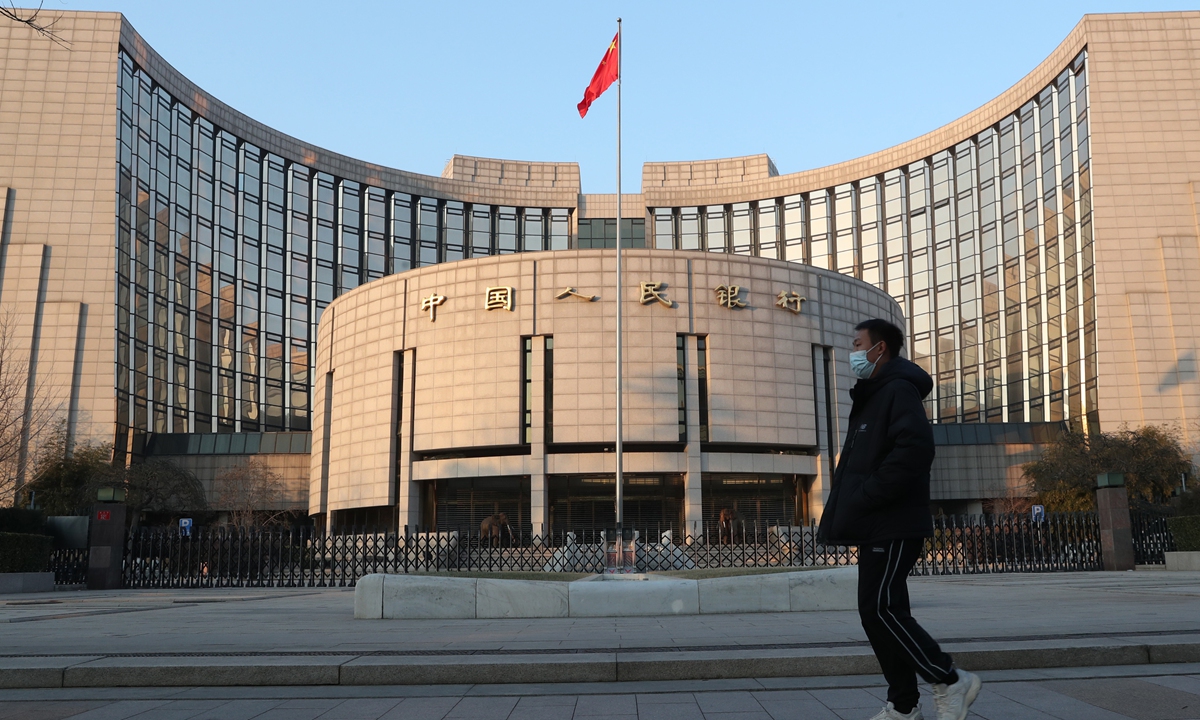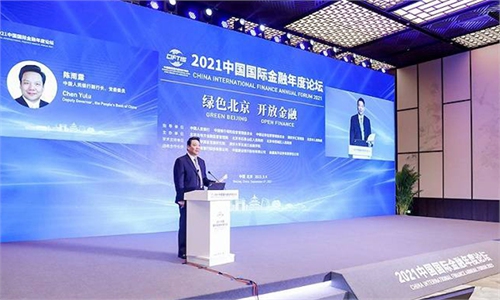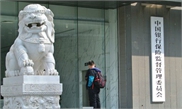China unveils draft financial stability law in major push to prevent systemic risks
Move lays foundation to prevent systemic risks in China

China's central bank Photo: CFP
China's central bank on Wednesday night unveiled a draft financial stability legislation, including the creation of a financial stability guarantee fund, laying the legal groundwork for a holistic, sector-spanning and cross-departmental approach to preventing systemic financial risks.
The draft bill underscored the country's efforts to beef up its financial strength amid domestic and global economic and financial complexities, experts said, as they focused their attention on how the would-be fund could minimize risks.
In recent years, the country has created a multi-dimensional financial legal system that comprises laws related to the central bank, commercial banks, securities and insurance. But there's still a lack of holistic design and comprehensive arrangement spanning sectors and government departments when it comes to financial stability, as relevant terms are distributed loosely among multiple laws and regulations, the People's Bank of China (PBC), the central bank, said in a statement on its website elaborating on the law's drafting.
Financial risks, known for their abruptness, spillovers, complexities and relatedness, would have destructive implications for the economy and social development if they become contagious, read the statement.
Major developed economies have generally moved to enact laws specifically designed to build a unified and coordinated framework for financial stability, the statement continued, describing the legislation as imperative for the country's push to firmly prevent systemic financial risks.
The PBC is seeking public comment on the draft through May 6.
Xi Junyang, a professor at the Shanghai University of Finance and Economics, said that the legislation sends a signal of the government's intensifying stress on financial stability, as factors are accumulating that might increase volatility on China's financial markets, including the tense global geopolitical situation, property market fluctuations and so forth.
He said that while the existing financial laws and regulations have parts related to stability, the provisions are scattered in different laws and can't stabilize the financial markets as thoroughly as a systemic, comprehensive law such as the one just announced.
"The Party's centralized and unified leadership of financial work will be upheld to build a highly efficient, prestigious, coordinated and vigorous work mechanism for financial stability," per the draft bill.
Financial activities will fall under supervision for their entirety and financial risks will be coped with in accordance with market-oriented and law-abiding principles, so as to protect the legitimate rights and interests of market entities and avoid moral hazard, the draft bill stipulates.
Without approval, no entities and individuals are allowed to set up financial institutions or engage in financial services and activities, the draft law states, mandating licenses for financial operations.
Major problems and events concerning financial stability and reform development should be filed with the Chinese Communist Party's Central Committee and the State Council, the cabinet, for decision-making, according to its provisions.
Among the most closely watched items is the proposed financial stability guarantee fund, which will be used as spare capital for the handling of the country's major financial risks.
The draft law could help alleviate the fallout from certain types of financial risks with the setting up of new mechanisms like a financial stability safeguard fund, Xi said.
For example, for companies having liquidity problems like developer Evergrande, such a fund could buffer the financial risks by taking stakes in such companies. The fund could also be used to alleviate sudden shocks to the financial market, such as an abrupt stock market collapse, he said.
However, experts stressed that the fund can only play an auxiliary role in smoothing market fluctuations, rather than completely replacing or interfering in market trends.
"If it's functioning well, that is, it doesn't interfere with the markets too much and is only used at an appropriate time, the fund would be useful in reducing volatility. But it might be a double-edged sword and bring risks if not used properly," Xi told the Global Times.
Dong Dengxin, director of the Finance and Securities Institute at the Wuhan University of Science and Technology, told the Global Times that China needs to optimize systems at both the top and bottom levels to create a healthy and effective market.
"One major problem of China's stock markets is a lack of institutional investors, and the second is a serious lack of long-term capital. Those problems can't be solved by setting up market-rescue funds alone," Dong said, adding that the fund should only be used in emergency situations.
Xi added that the central government wants local governments to assume more responsibility for supervising local financial institutions.
"This mostly refers to local private funds and investment institutions," Xi said, adding that local authorities might face tougher punishment if they don't supervise those companies properly according to laws and regulations.



